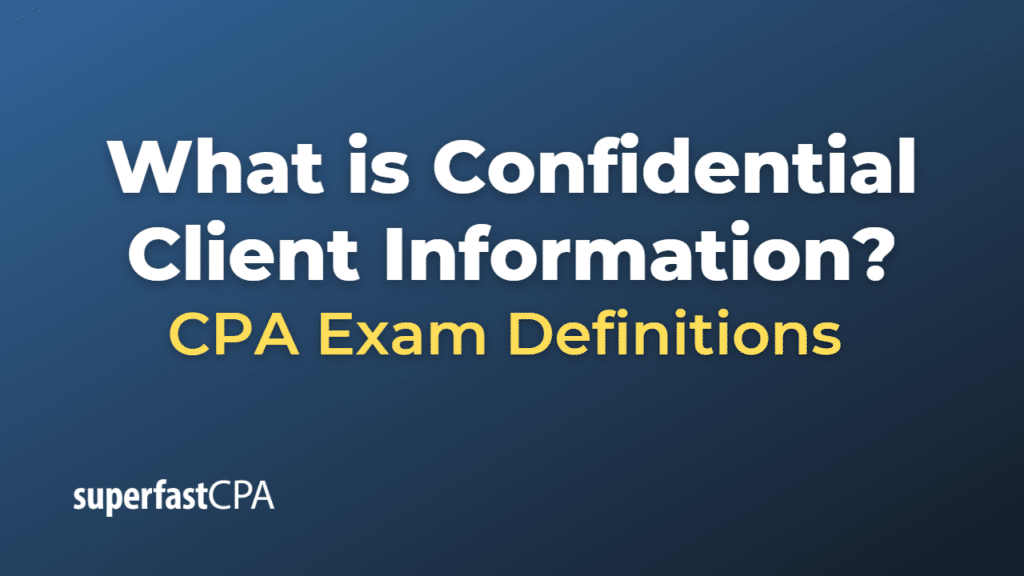Confidential Client Information
Confidential client information refers to sensitive, private, or proprietary data about a client that is shared with or held by a professional service provider, such as a lawyer, accountant, financial advisor, or consultant. The service provider has an ethical and legal obligation to protect the client’s confidential information from unauthorized access, disclosure, or misuse.
Confidential client information can include various types of data, such as:
- Personal information: This includes the client’s name, address, contact details, Social Security number, date of birth, and other personally identifiable information (PII).
- Financial information: This encompasses bank account numbers, credit card numbers, tax returns, income statements, and other financial documents that reveal the client’s financial status and transactions.
- Business information: In the case of corporate clients, this may include trade secrets, intellectual property, business plans, client lists, marketing strategies, and other proprietary information that provides the company with a competitive advantage.
- Legal information: This may consist of information related to legal matters, such as contracts, litigation, or regulatory compliance, shared between a client and their legal counsel.
Service providers must take appropriate measures to safeguard confidential client information, which can include maintaining secure storage systems, limiting access to authorized personnel, establishing data encryption protocols, and implementing non-disclosure agreements (NDAs) to protect the client’s privacy and prevent unauthorized disclosure.
Failing to protect confidential client information can result in severe consequences, including legal action, regulatory penalties, damage to the service provider’s reputation, and loss of trust from clients.
Example of Confidential Client Information
Let’s consider a hypothetical example involving a financial advisor, John, and his client, Lisa.
Lisa is a successful entrepreneur who has sought John’s expertise to help her manage her investments and plan for her financial future. In the course of their professional relationship, Lisa shares various types of confidential information with John, such as:
- Personal information: Lisa’s full name, date of birth, Social Security number, home address, and contact details.
- Financial information: Lisa’s bank account and credit card numbers, tax returns, and investment portfolio details.
- Business information: Details about Lisa’s company, including its financial performance, business plans, and strategies.
John has a professional obligation to protect Lisa’s confidential information. To safeguard her data, he takes the following measures:
- Secure storage: John stores Lisa’s documents and electronic files in a secure filing cabinet and password-protected computer system, respectively.
- Limited access: Only John and his authorized team members can access Lisa’s information, and they are required to sign non-disclosure agreements (NDAs) to prevent unauthorized sharing of her data.
- Encryption: John uses encrypted email and secure file transfer methods when sending or receiving sensitive information related to Lisa.
- Privacy policy: John’s financial advisory firm has a comprehensive privacy policy in place that outlines how client information is collected, used, and protected.
By taking these steps, John ensures that Lisa’s confidential client information remains secure and that her privacy is respected throughout their professional relationship. If John were to fail in protecting Lisa’s information, it could lead to legal consequences, damage his reputation, and result in a loss of trust from Lisa and other clients.













